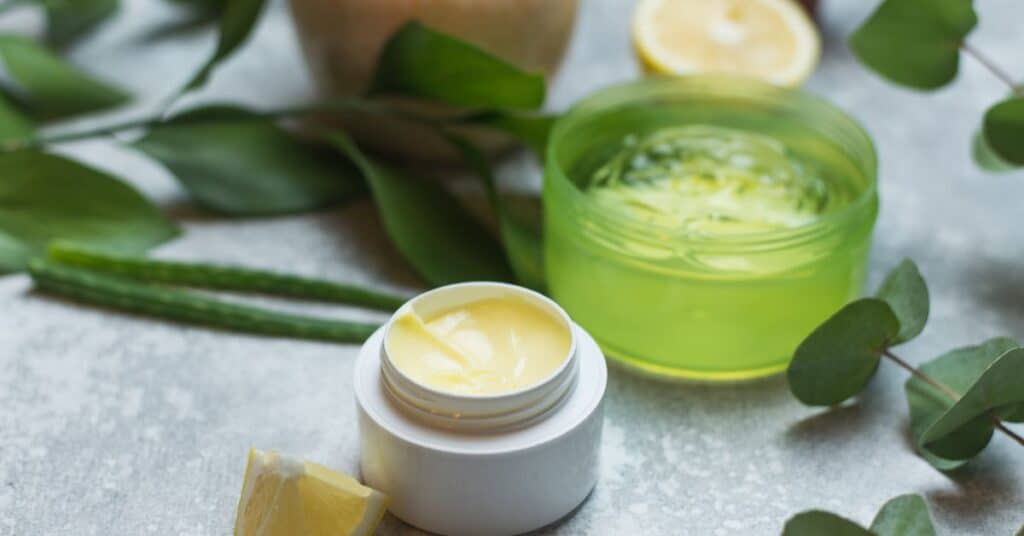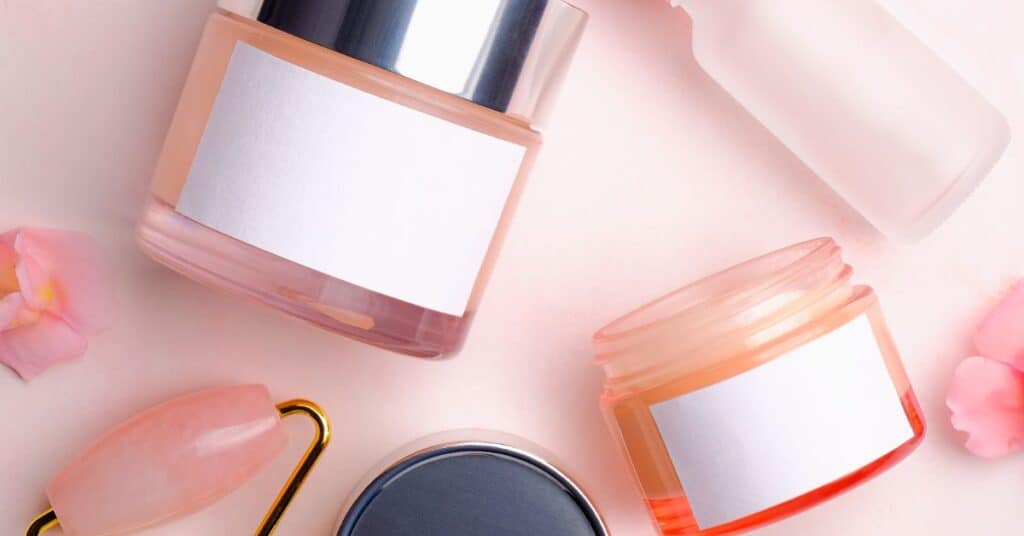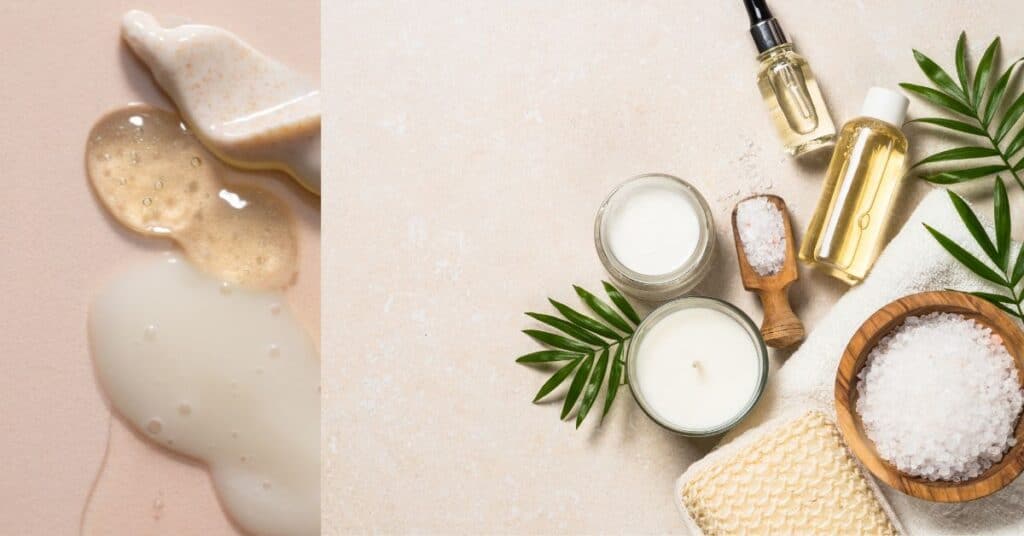Table of Contents
- How Can I Start Skin Care At Home?
- What Are The Homemade Natural Skincare?
- What Are The Home Remedies For Glowing Skin?
- Why Do I Need To Pay Attention To Seasons?
- Why Must I Use Suitable Oils For My Skin?
- How Can I Get Perfect Skin At Home?
- What Are The Tips For People With Dry Skin?
- Final Thoughts
Do you want to learn how to create skincare products at home? According to my study, glowing skin is one way to characterize good skin. Since your skin is your most significant organ, you should take good care of it.
Generally speaking, glowing skin is seen as a sign of vigor and health.
Conversely, having dry or dull skin might make you feel less than your best.
You must drink at least 8 glasses of water, each measuring eight ounces.
Your body will acquire a greater quantity of vitamins and antioxidants if you raise the proportion of vegetables and fruits that you consume in your diet.
Eating fish oils and other healthy fats and avoiding processed meals high in preservatives may directly contribute to healthier-looking skin. But when you continue to read,
I’ve compiled a list of at-home skincare products. Taking care of your skin is an effective self-care practice that may result in skin that glows.
At times, getting glowing skin might be more difficult due to stress, dietary inadequacies, hormone imbalances, and other medical issues.
Go to your primary care physician or a dermatologist if you are worried about the texture of your skin.
Both of these professionals are qualified to provide you with advice.
Underlying medical problems may be the cause of skin that is patchy, flaky, dry, or dull.
Now, let’s get started.
How Can I Start Skin Care At Home?
Products for natural skin care usually don’t include artificial or chemical substances. They could also contain choices that are better for the environment.
The natural skin care sector is one of the cosmetics industries experiencing the most development.
Compared to traditional skin care products, natural skin care products provide several advantages, including eliminating some synthetic components that might be harmful to the skin.
It may also be a greener choice.
Here’s how to begin using natural skin care products on your own:
1. Cleaning: This initial stage should be completed every morning and evening.
Use circular movements to apply a cleanser to your face gently. After rinsing, pat dry. Searching for a face wash rich in vitamins that are good for the skin, such as A, B2, B12, and E, is recommended.
2. Exfoliating: It’s not advisable to use exfoliants every day.
Instead, use them once or three times a week to gently exfoliate dead skin cells.
Exfoliants should be used similarly to cleansers, for 30 seconds at a time, and then rinsed with warm water. Just skip this step on the days when you aren’t exfoliating.
3. Toning: Toner use is one of the most often overlooked skin care procedures.
A toner may assist your skin in becoming more balanced and clear of pollutants, as well as tightening its pores.
The pH of your skin can be adjusted using clarifying toners. Peach extract and grape seed extract are two examples of natural instances.
Furthermore, according to certain studies, you might want to discuss with a dermatologist the potential benefits of vitamin E, ginseng powder, and other antioxidants in treating melasma, a kind of skin darkening.
4. Moisturizing: One critical component to search for in moisturizers is ceramides.
They support and preserve the natural barrier of the skin. Look specifically for phytoceramides or ceramides originating from plants.
These naturally occurring waxy lipids aid in retaining moisture in the skin.
Jojoba oil is another fantastic moisturizing component that promotes renewal and shields against environmental stresses, which may have anti-inflammatory, antifungal, and antioxidant qualities.
5. Sun protection: According to a reliable source, everyone six months of age and above should use SPF daily. Best After Sun lotion.
An environmentally beneficial substitute for chemical sunscreens might be mineral sunscreens.
Additionally, dermatologists frequently advise people with sensitive skin.
Tinted sunscreens may be helpful, even though mineral sunscreens can create a white cast on the skin, which is more apparent in darker skin tones.
Applying creams requires starting with the lightest possible fluids—moisturizer, serum, and SPF.
Do the same in the morning and at night.
What Are The Homemade Natural Skincare?
1. Clarifying oatmeal mask: Crushed oats and apple cider vinegar are combined to eliminate surplus oil and accumulation and restore the skin’s pH balance, respectively.
Ingredients
one tablespoon of ground oats
one-fourth teaspoon of apple cider
one-fourth teaspoon lemon juice;
half a tablespoon of brown sugar
Instructions:
1. Make a smooth paste from the ground oats and apple cider.
2. Stir in the brown sugar and lemon juice until well combined.
3. Leave on for five to ten minutes after washing your skin.
4. Apply circular pressure.
5. Use warm water to rinse.
2. Facial scrub with sugar
Ingredients
One teaspoon of peppermint tea leaves
Tea leaves as a skin toner:
4 tsp. leaves of white tea
half a cup of distilled water
Two lavender oil droplets
Instructions:
1. Fill a French press with all of the ingredients.
2. Give the mixture ten minutes to steep.
3. Transfer into a glass jar to chill.
4. Fill a 4-ounce spray bottle with mixture and aloe vera.
5. After washing your face, spritz this on and keep it in the fridge.
What Are The Home Remedies For Glowing Skin?
1. Use virgin coconut oil to soothe your skin. Coconut oil contains therapeutic, anti-inflammatory, and antioxidant qualities.
However, not all skin types can benefit from coconut oil applied to the face. If you have a coconut allergy, refrain from using coconut.
It has several applications if you can use it without getting irritated. Using coconut oil, you can:
1. Remove your makeup
2. ease the barrier that covers your skin
3. encourage healthy, dewy skin beneath the top layer; coconut oil is an excellent moisturizer. Try giving your face a little massage with coconut oil.
After letting it sit for a few minutes, rinse it with your regular cleanser.
2. Aloe vera has healing qualities and may promote the formation of new skin cells. Use it to maintain firm, healthy skin.
In addition, it hydrates and calms skin without clogging pores. After washing your face every day, apply aloe vera to your skin to give it a healthy glow.
One might potentially have an allergy to aloe vera. It should be safe to use once you test it by applying a little quantity to your forearm and waiting a day for any reaction.
3. After cleansing your face, properly moisturize your skin. Use products that seal in moisture, aid in healing, and include antioxidants to keep your skin looking young and radiant.
When your skin feels dry, avoid exfoliating it, and don’t skip moisturizer because your face seems greasy.
When your skin is still damp following a shower or face washing, apply moisturizer to it.
This will trap in more moisture rather than making your face feel smoother on the surface.
4. Apply sunscreen daily. Sunscreen with an SPF of about 15 or higher can prevent the development of skin cancer.
Protecting your skin from damaging UV radiation also helps prevent photoaging, the skin’s aging process.
Applying sunscreen in the morning is essential, especially when it’s raining, or the sky is cloudy.
5. Establish a cleansing regimen that works: You don’t want to overly dry up your skin by washing it too frequently, nor do you want to encourage your pores to overproduce oil to compensate for the excessive washing.
The best times to wash your face are usually shortly before bed, first thing in the morning, and after a vigorous workout.
Why Do I Need To Pay Attention To Seasons?
Like the seasons, your skin changes throughout the year. Therefore, the ideal cure for the winter won’t always be the same as the one that works for you in the summer.
As is frequently the case, we require a lighter moisturizer for the summer and a more moisturizing and potent product for the winter, when the cold causes our skin to become dryer, ideally, with an SPF to shield our skin from the sun’s harmful U.V. rays.
Neals Yard Remedies Almond Moisturizer is an excellent option for wintertime because it is high in vitamins and ideal for sensitive skin.
Combining delicious almond and evening primrose oils aids in the eradication of dehydration protects tones, and balances the skin.
Lola’s Apothecary Orange Patisserie Warming Body Souffle is a great way to get rid of those annoying dry flakes on your body.
It smells beautiful enough to eat with flavors of orange dripping cake, toasty ginger, and vanilla spices.
Still, it’s also incredibly nourishing since it includes coconut butter, which is high in essential fatty acids and vitamin E.
The Lancer Sheer Fluid Sun Shield moisturizer, which has SPF30, is a need for the warmer months! Victoria Beckham and other celebrities are smitten with Lancers skincare line, which is highly moisturizing and restores equilibrium to your skin. It is also ideal for traveling because it doesn’t feel overly heavy on the skin.
Most individuals use sleep masks once or twice a week, and despite their dirty reputation, they work rather well.
Apply them like you would any other cream: Take a nickel-sized portion, apply it all over your face, go to bed, and when you wake up, wash it off to see skin that is smoother and more radiant.
Use a spoon to prevent contamination and apply the product to clean skin and hands, even though it should be the final step in your nighttime ritual.
Why Must I Use Suitable Oils For My Skin?
Although nobody likes to have oily skin, natural oils may still be beneficial to maintaining the health of our skin.
I apply Emma Hardies Brilliance Facial Oil in the evening so that my skin may be repaired while I’m sleeping.
It has a gorgeous scent and contains nine essential oils, including lavender, which makes it ideal for promoting sleep.
Combining your oil with a bedtime moisturizer may create a layer of defense against the chilly, dry air.
Individuals who experience cyclical dryness and flaking of the skin should consult the product labels for hyaluronic acid.
It may remove those annoying dry flakes from your skin, leaving it feeling very beautiful.
A favorite of mine is the Pestle & Mortar Pure Hyaluronic Serum, which addresses fine wrinkles, dullness, and dryness without aggravating skin that is too sensitive.
Lolas Apothecary offers a fantastic selection of sensual, relaxing, and aromatic oils to care for your skin, resulting in whole-body radiance.
Thirty percent of the Delicate Romance Balancing Body and Massage Oil is made of argan oil, which enhances luminosity and improves skin texture, and rosehip oil, which helps to minimize fine wrinkles, age spots, and stretch marks.
It’s a pretty multipurpose bathroom essential for your face, body, hair, and nails. It also smells impressive, with vanilla, lemon, rose, and sweet orange notes.
How Can I Get Perfect Skin At Home?
Although instant remedies do not exist for acne or other imperfections, several practical strategies can be implemented.
These include using products that are appropriate for your skin type and the particular issue at hand, abstaining from touching or popping pimples, and keeping a regular washing routine for your skin.
People with blemishes or acne often have dry, oily, or mixed skin.
Several skin care guidelines are available for various skin types, in addition to generic guidelines that anyone can attempt. These suggestions:
1. Refrain from popping pimples: They signify accumulated sebum, oil, and germs. It also indicates that the body’s healing process is at work.
This healing process is interfered with by popping the zit. Furthermore, the spilled liquids expose the nearby skin to the same germs, which raises the possibility of more pimples developing.
Permanent scarring might result from the exposed pimple.
Steer clear of popping pimples whenever you can. Keep the space tidy if they drain.
2. Wash twice a day and again after perspiring: According to the American Academy of Dermatology, people should wash twice and again.
It is essential to cleanse the skin as soon as possible after sweating since leaving perspiration on the skin and letting it dry might exacerbate acne.
3. Refrain from touching your face: Using your hands to touch your face can transfer germs, oils, and debris onto the skin, causing outbreaks.
Keeping your hands from your face might help avoid this.
4. Moisturize: Following a regular face wash, all skin types can gain from moisturizing. Maintaining hydrated skin may help reduce sebum production and shield it from environmental harm. The best moisturizer for each individual will differ based on their skin type. To determine what moisturizers are best for them, anyone should consult a dermatologist.
5. Apply topical drugs
6. Continue to drink water
7. Make use of natural cosmetics
8. Lessen tension
Anyone unsure about their skin care regimen should consult a dermatologist for more guidance.
What Are The Tips For People With Dry Skin?
Dry skin usually produces less oil, which might lessen the skin’s vitality. Even those with dry skin might get acne if they use the wrong moisturizer or put too much oil on their face to mask their natural oiliness.
Here are some pointers for taking care of dry skin:
1. Use a light moisturizer: Dry skin needs moisture, but it’s critical to locate a source that won’t clog pores.
Some may discover that natural oils like coconut, olive, or argan oil work well for their skin.
2. Use gentle washes: Those with dry skin must choose a mild wash that doesn’t remove the skin’s natural oils.
To determine which mild cleanser is appropriate for their skin type, a person may find it most effective to consult a dermatologist.
3. Avoid using water that is too heated for bathing, showering, or washing hands and face, as it may injure or dry out the skin.
If you observe that a bath leaves your skin feeling parched, you may wish to switch to lukewarm water.
It might be challenging to cleanse your face with mixed skin.
While some might find that using a cleanser meant for oily skin works well, others could see that it dries out some areas of their skin too much.
For those with combination skin, washing the face with a gentle cleanser and any oily areas with an oil-reducing cleanser afterward may help keep the skin balanced.
Final Thoughts
Taking care of your skin is something you should do regularly, no matter your age or lifestyle. It would help if you took the time to care for your skin since it will always be yours.
It will take care of you in exchange. You’re covering your face with a variety of chemical poisons when you come into contact with tobacco smoke.
Your skin cells experience more oxidative stress as a result, which causes prematurely aged skin. Another incentive to stop smoking is the way it looks on your skin.
For the cells that make up your skin to function correctly, they require water.
Even though research into the relationship between consuming water and maintaining healthy skin is still in its infancy, at least one 2015 study identified a direct correlation between the two variables.
Consume up to eight cups of water per day, with each glass containing eight ounces of water.
If you consume a diet abundant in fruits and vegetables, your body will experience more vitamins and antioxidants.
Consuming fish oils and other healthy fats and avoiding processed foods rich in preservatives may all directly lead to skin that looks better.
Eating a range of superfoods is the most incredible method to genuinely cause your skin to shine from the inside out.
A potent antioxidant and superfood is vitamin C. It’s essential for keeping your immune system robust and plays a significant role in providing you with glowing, healthy skin.
Fortunately, finding it in many fruits and vegetables isn’t that tough!! Blueberries, papaya, strawberries, kiwis, and sweet potatoes are some other fruits and vegetables that are high in vitamin C. Oranges are still the surest source of vitamin C.
Including some of them in your diet may be accomplished straightforwardly by including some blueberries in your morning cereal or yogurt.
I hope you know a little more about creating skincare products at home



